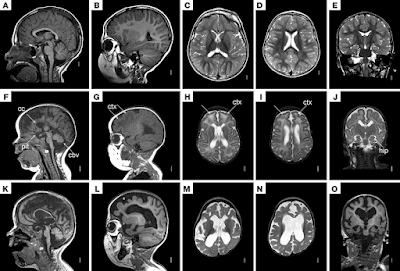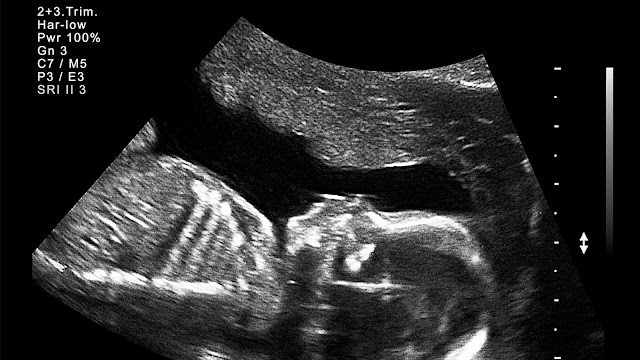Water is the essence of life, a critical component that sustains every form of life on Earth. In the human body, water plays a fundamental role in maintaining health and well-being. It is often said that you can survive for weeks without food but only a few days without water. This underscores the vital importance of staying hydrated. Despite being a basic element, the role of water in the body is complex and far-reaching, impacting every system and function. This blog will explore the myriad reasons why water is so essential to the human body, the consequences of dehydration, and practical tips for maintaining optimal hydration.
The Composition of the Human Body
The human body is composed of approximately 60% water, making it a major component of every cell, tissue, and organ. The exact percentage varies depending on age, gender, and body composition, with infants having the highest percentage of water and elderly individuals having the least. Water is found in three main compartments within the body:
1. Intracellular Fluid (ICF): The majority of water in the body, about two-thirds, is found within cells. This fluid is crucial for cellular processes, including nutrient transport, waste removal, and energy production.
2. Extracellular Fluid (ECF): The remaining one-third of the body's water is found outside cells, in the extracellular fluid, which includes blood plasma, interstitial fluid (fluid between cells), and lymphatic fluid.
3. Transcellular Fluid: A small amount of water is found in specific areas such as the cerebrospinal fluid, synovial fluid (in joints), and the digestive tract.
Water's distribution in these compartments is carefully regulated to ensure the proper function of various bodily processes.
The Essential Functions of Water in the Body
Water is involved in almost every bodily function, and its importance cannot be overstated. Here are some of the key roles water plays in maintaining health:
1. Cellular Function and Metabolism
Water is the medium in which all biochemical reactions occur, including metabolism, the process by which the body converts food into energy. It acts as a solvent, dissolving nutrients, electrolytes, and other vital substances, making them accessible for cellular uptake. Additionally, water facilitates the transportation of these nutrients into cells and the removal of waste products from cells. Without adequate water, cellular function becomes impaired, leading to reduced energy production and overall cellular inefficiency.
2. Temperature Regulation
One of the most critical functions of water is its role in maintaining the body's temperature. Water has a high heat capacity, meaning it can absorb and retain heat. When the body overheats, water is lost through sweat, a process that helps to cool the body down. As sweat evaporates from the skin surface, it removes excess heat and prevents the body from overheating. This thermoregulatory process is vital for maintaining a stable internal temperature, especially during physical activity or in hot environments.
3. Digestion and Nutrient Absorption
Water is essential for the digestive system to function properly. It aids in the breakdown of food, allowing enzymes to work more efficiently during digestion. Saliva, which is primarily water, begins the digestive process by moistening food and helping in its breakdown. In the stomach, water helps to dissolve food and facilitate the action of digestive enzymes. Furthermore, water is necessary for the absorption of nutrients in the intestines, where it helps to transport digested food into the bloodstream.
4. Detoxification and Waste Removal
The body relies on water to eliminate waste products through urine, sweat, and bowel movements. The kidneys, which filter the blood to remove toxins, require an adequate supply of water to function effectively. Water dilutes these toxins and facilitates their excretion via urine. Additionally, water helps to move waste through the digestive system, preventing constipation and ensuring regular bowel movements. Without sufficient water, the body's ability to detoxify itself becomes compromised, leading to the accumulation of harmful substances.
5. Joint Lubrication and Cushioning
Water is a major component of synovial fluid, which lubricates and cushions joints, reducing friction and allowing for smooth, pain-free movement. This is particularly important during physical activities that put stress on the joints. Adequate hydration ensures that joints remain flexible and reduces the risk of joint-related issues such as arthritis and injuries. Additionally, water acts as a cushion for vital organs and tissues, protecting them from shock and damage during sudden movements or impacts.
6. Brain Function and Mood Regulation
The brain is composed of about 75% water, making hydration critical for cognitive function and mental health. Water is involved in the production and transmission of neurotransmitters and hormones that regulate mood, memory, and concentration. Dehydration can lead to a decrease in cognitive performance, impairing focus, memory, and decision-making. It can also contribute to mood swings, anxiety, and irritability. In severe cases, dehydration can cause confusion, delirium, and even unconsciousness.
7. Circulatory and Respiratory Support
Water is a key component of blood, which is about 90% water. Blood carries oxygen and nutrients to cells throughout the body and removes carbon dioxide and other waste products. Adequate hydration ensures that blood remains fluid enough to flow easily through blood vessels, reducing the risk of clots and maintaining healthy blood pressure. Water also moistens the mucous membranes in the respiratory tract, facilitating the exchange of gases (oxygen and carbon dioxide) in the lungs.
The Consequences of Dehydration
Dehydration occurs when the body loses more water than it takes in, leading to a deficiency in the body's water levels. This can happen due to various factors, such as excessive sweating, diarrhea, vomiting, or inadequate fluid intake. The consequences of dehydration can range from mild discomfort to life-threatening conditions.
1. Mild Dehydration
Symptoms of mild dehydration include thirst, dry mouth, dark urine, and decreased urine output. Other signs may include fatigue, dizziness, and a slight headache. While these symptoms may seem minor, they indicate that the body is already struggling to maintain normal function.
2. Moderate Dehydration
If dehydration progresses, the symptoms become more severe. Moderate dehydration can lead to extreme thirst, dry and cracked skin, rapid heartbeat, low blood pressure, and confusion. At this stage, the body's ability to perform essential functions, such as temperature regulation and waste removal, is significantly compromised.
3. Severe Dehydration
Severe dehydration is a medical emergency that requires immediate attention. Symptoms include intense thirst, very dark urine or no urine at all, rapid breathing, sunken eyes, and a lack of sweat. Severe dehydration can lead to organ failure, shock, and, if not treated promptly, death.
Factors That Influence Hydration Needs
The amount of water a person needs can vary based on several factors:
1. Age: Infants, young children, and the elderly are more vulnerable to dehydration due to their bodies' different responses to fluid loss and needs.
2. Physical Activity: Athletes and individuals engaged in strenuous physical activities need more water to compensate for the loss through sweat.
3. Climate: Hot and humid weather increases the need for water due to higher rates of sweating.
4. Health Conditions: Certain health conditions, such as fever, vomiting, diarrhea, and kidney disease, can increase the body's water requirements.
5. Diet: High-protein, high-fiber, and salty foods increase the need for water to aid digestion and maintain electrolyte balance.
Practical Tips for Maintaining Optimal Hydration
1. Drink Regularly: Don’t wait until you’re thirsty to drink water. Establish a habit of drinking water throughout the day, aiming for at least 8 cups (64 ounces) daily, though needs may vary.
2. Eat Hydrating Foods: Incorporate water-rich foods into your diet, such as fruits (e.g., watermelon, oranges) and vegetables (e.g., cucumber, lettuce).
3. Monitor Urine Color: A simple way to gauge hydration is by observing the color of your urine. Light yellow indicates proper hydration, while dark yellow or amber suggests you need more water.
4. Adjust for Activity: Increase your water intake during and after exercise or strenuous activities to replenish lost fluids.
5. Limit Dehydrating Beverages: Minimize the consumption of caffeinated and alcoholic beverages, as they can increase water loss through urination.
6. Use Hydration Aids: For those who struggle to drink enough water, consider using hydration apps, setting reminders, or carrying a water bottle to encourage regular drinking.
Conclusion
Water is undeniably the lifeline of human health, integral to nearly every function within the body. From cellular processes and temperature regulation to digestion and brain function, water is essential for maintaining balance and ensuring that the body operates at its best. Dehydration, even in its mildest form, can disrupt these processes, leading to a cascade of negative health effects.
Understanding the importance of water and making conscious efforts to stay hydrated can have profound benefits for overall health and well-being. By prioritizing water intake and recognizing the signs of dehydration early, you can support your body in its daily functions and protect it against the dangers of inadequate hydration. Remember, staying hydrated is not just about drinking water—it's about nurturing your body's most fundamental need for life.



.jpeg)
.jpeg)




.jpeg)
.jpeg)

0 Comments